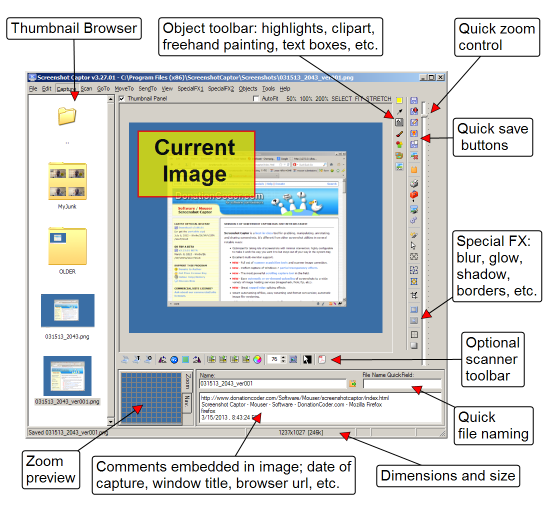
Have a suggestion?
Click here to suggest a blog item.
Newsletters Archive
Catch up with DonationCoder by browsing our past newsletters, which collect the most interesting discussions on our site: here.
Editorial Integrity
DonationCoder does not accept paid promotions. We have a strict policy of not accepting gifts of any kind in exchange for placing content in our blogs or newsletters, or on our forum. The content and recommendations you see on our site reflect our genuine personal interests and nothing more.
Latest News
July 2, 2024
Server Migrations Coming
- Donationcoder server migration is slowly proceeding, expect some hiccups as we get all our ducks in a row..
July 19, 2022
Software Update
Jan 3, 2022
Event Results
May 13, 2020
Software Updates
Mar 24, 2020
Mini Newsletter
Dec 30, 2019
Software Updates
Jan 22, 2020
Software Updates
Jan 12, 2020
Newsletter
Jan 3, 2020
Event Results
Jan 2, 2020
Software Updates
Dec 30, 2019
Software Updates
- Automatic Screenshotter v1.16
- Screenshot Captor v4.35 beta
- Find and Run Robot v2.238 beta
- Clipboard Help and Spell v2.46.01
- LaunchBar Commander v1.157
- Mousers Media Browser v2.0
- MultiPhoto Quotes v2.09.1
- DiscussionList for Android v1.08
April 27, 2019
Software Updates
Feb 26, 2019
Software Updates
Feb 23, 2019
Software Updates
Feb 14, 2019
Software Updates
Jan 6, 2019
Event Results
Dec 2, 2018
Software Updates
Nov 13, 2018
Software Releases
July 30, 2018
Software Updates
June 24, 2018
Software Updates
June 6, 2018
Software Updates
Apr 2, 2018
Fundraiser Celebration
Apr 2, 2018
Software Updates
Feb 24, 2018
Software Updates
Jan 14, 2018
Major Site News
Jan 10, 2018
Event Results
Latest Forum Posts
May we recommend..
Screenshot Captor is our most well-known tool. A best-in-class tool for grabbing, manipulating, annotating, and sharing screenshots. It's different from other screenshot utilities in several notable ways...
Our daily Blog
This page spotlights the most interesting posts collected from our forum every day.
You are viewing a specific blog item. Click here to return to the main blog page.
"Enable advanced performance" - the optimization that isn'tI used to think this setting was a decent performance thing, and used to enable it. My impression, based on various faulty wannabe-tech-knowledgy blogs was that "Enable write caching" was only the usual filesystem caching, whereas "Enabled advanced performance" meant the actual disk write cache (ie., the on-disk memory buffer, usually 8, 16 or 32 megabytes). It's a while since I learned the true meaning, and turned off the setting in shock, and then didn't think much more about it. But after yesterday's slashdot article Apps That Rely On Ext3's Commit Interval May Lose Data In Ext4 (and especially a lot of the moronic comments, sigh) I remembered this setting again, and thought it would be a decent thing warning about it here at DC. Basically, what it does is making the Windows API function FlushFileBuffers() do nothing. This API is meant to flush the OS's write cache for a file to disk, and is the only way to guarantee that your data goes to disk in a modern OS. Enabling the setting probably won't affect a lot of software positively (since not a lot of software actually uses FlushFileBuffers()), but for things like databases this is crucial to ensure data consistency across crashes. Read the technet link for a more in-depth description, and go turn that checkmark off if you have it enabled.. |
||





